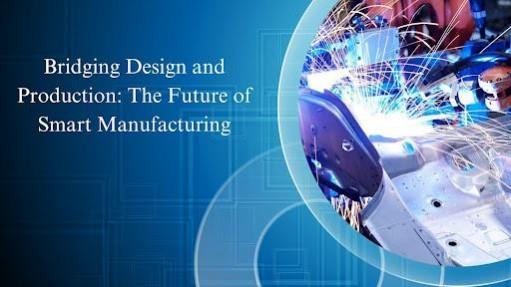
In an era where technological advancements dictate industry standards, integrating Product Lifecycle Management (PLM) and Manufacturing Execution Systems (MES) has emerged as a game-changing approach. Aman Jain, an expert in manufacturing intelligence, explores this synergy, emphasizing how it fosters closed-loop manufacturing and enhances efficiency. This article delves into the digital innovations shaping modern manufacturing and their impact on industrial processes.
The Digital Thread: A Seamless Data Flow
A foundational element of PLM-MES integration is the digital thread, a system that connects design, production, and quality control through a continuous flow of data. This integration has proven to increase cross-functional collaboration by 58% and enhance data accuracy by 48%. By implementing a digital thread framework, manufacturers can optimize product design, improve change management efficiency, and reduce production bottlenecks.
Transforming Manufacturing with Smart Technologies
The integration of IoT, digital twins, and edge computing enhances PLM-MES connectivity. IoT improves predictive maintenance by 33% and reduces unplanned downtime by 25%. Digital twins cut process development time by 35% and boost simulation accuracy by 41%. Edge computing lowers data latency by 43% and enhances response times by 31%.
The Role of Artificial Intelligence in Manufacturing
Artificial Intelligence (AI) is revolutionizing smart manufacturing by enabling predictive analytics and real-time process optimization. AI-driven quality control systems have demonstrated a 48% improvement in defect detection rates, while machine learning models have enhanced supply chain efficiency by reducing inventory costs by 42%. AI-assisted production scheduling has also led to a 28% decrease in quality defects and a 26% improvement in maintenance accuracy.
Strategic Implementation: A Roadmap to Success
Successful PLM-MES integration requires a structured implementation approach. The process begins with a comprehensive assessment phase, where organizations identify integration requirements and evaluate system compatibility. Companies that engage stakeholders early in this phase report a 32% improvement in project milestone achievement and a 26% reduction in implementation resistance. The planning phase focuses on developing data standards, integration architectures, and resource allocation frameworks, leading to a 33% reduction in data synchronization issues.
Industry Applications: Advancing Aerospace, Automotive, and Electronics Manufacturing
The aerospace sector benefits significantly from PLM-MES integration, with companies reporting a 31% reduction in non-conformance issues and a 33% improvement in regulatory compliance efficiency. In the automotive industry, the integration enhances production system adaptability by 30% and reduces quality-related costs by 25%. Electronics manufacturers have leveraged this approach to achieve a 33% reduction in new product introduction time and a 29% improvement in yield rates.
Overcoming Challenges in Integration
Despite its benefits, PLM-MES integration presents challenges such as data silos, interoperability issues, and change management resistance. Implementing standardized APIs and middleware solutions has helped companies improve data flow efficiency by 47% while reducing integration complexity by 38%. Additionally, organizations that invest in employee training programs have reported a 44% increase in user adoption rates and a 36% improvement in project success.
Future Trends: AI, Blockchain, and Quantum Computing
The future of smart manufacturing lies in AI-enabled autonomous systems, blockchain-based supply chain validation, and quantum computing for process simulations. AI-driven automation is projected to reduce human intervention in routine operations by 73%, while blockchain integration improves data traceability by 58%. Quantum computing applications could further revolutionize manufacturing by accelerating complex calculations, reducing optimization processing time by 76%.
In conclusion, PLM-MES integration is transforming manufacturing by driving innovation, optimizing operations, and improving efficiency. As industries adopt digital transformation, organizations leveraging these technologies will gain a competitive advantage in a complex global market. Aman Jain's insights offer a roadmap for manufacturers to harness digital tools for future-ready operations.












!['Valentine's Week in Parliament'? : Saugata Roy, June Malia's cosy conversation amid house session goes viral [Watch]](https://data1.ibtimes.co.in/en/full/828484/valentines-week-parliament-saugata-roy-june-malias-cosy-conversation-amid-house.jpg?w=220&h=138)




